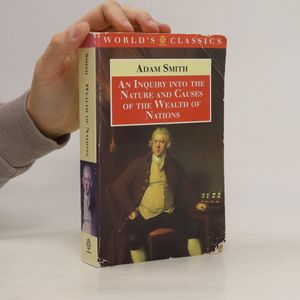
Viac o knihe
An Inquiry into the Nature and Causes of the Wealth of Nations is Smith's magnum opus and most influential work, first published on 9 March 1776 during the Scottish Enlightenment. It is a clearly written account of political economy at the dawn of the Industrial Revolution, and is widely considered to be the first modern work in the field of economics. It is often considered one of the most influential books on the subject ever published. The Wealth of Nations was written for the average educated individual of the 18th century rather than for specialists and mathematicians. There are three main concepts that Smith expands upon in this work that forms the foundation of free market economics: division of labour, pursuit of self interest, and freedom of trade. The Wealth of Nations expounds that the free market, while appearing chaotic and unrestrained, is actually guided to produce the right amount and variety of goods by a so-called „invisible hand“. The image of the invisible hand was previously employed by Smith in Theory of Moral Sentiments, but it has its original use in his essay, „The History of Astronomy“. Smith believed that while human motives were often driven by selfishness and greed, the competition in the free market would tend to benefit society as a whole by keeping prices low, while still building in an incentive for a wide variety of goods and services. Nevertheless, he was wary of businessmen and argued against the formation of monopolies. An often-quoted passage from The Wealth of Nations is: “It is not from the benevolence of the butcher, the brewer, or the baker that we expect our dinner, but from their regard to their own interest. We address ourselves, not to their humanity but to their self-love, and never talk to them of our own necessities but of their advantages.”
Nákup knihy
An Inquiry into the Nature and Causes of the Wealth of Nations, Adam Smith
- Jazyk
- Rok vydania
- 2022
- product-detail.submit-box.info.binding
- (mäkká)
Doručenie
Platobné metódy
Tu nám chýba tvoja recenzia




